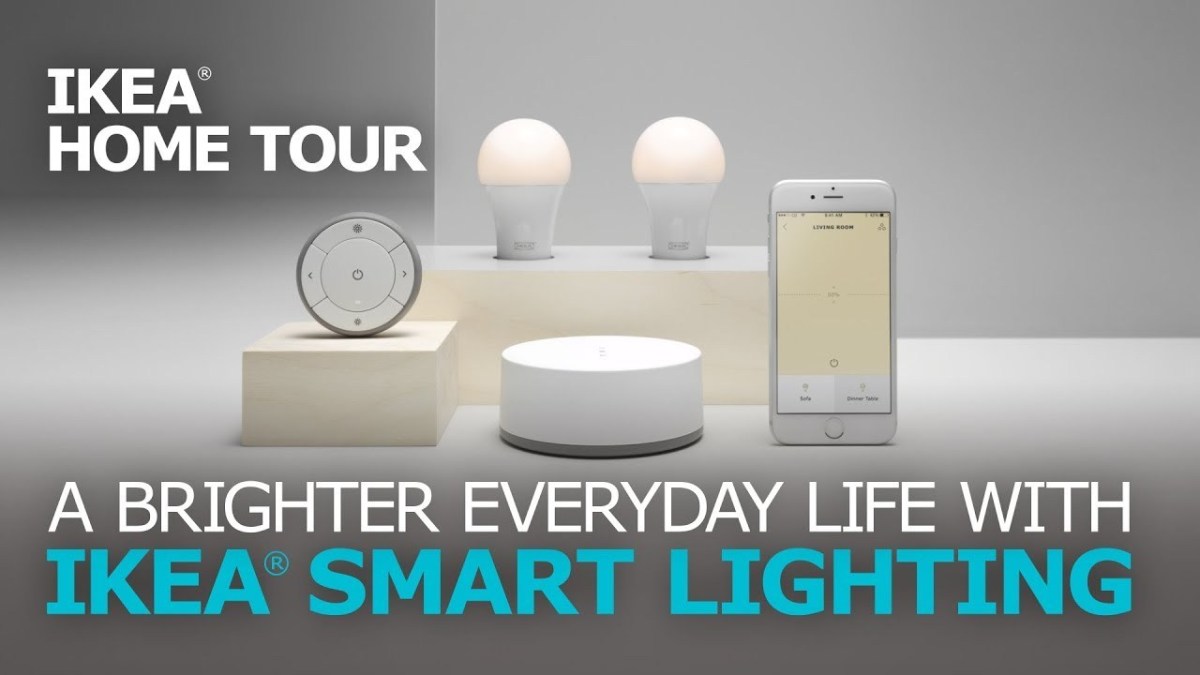Science fiction movies that show the future always show that households, workplaces and cities the computers are connected via the Internet, being manipulated by voice commands or from the phone, asking Jarvis to serve the morning coffee. Today we get closer to this reality using the Internet of Things (IoT), being the pioneers Amazon, Google and Microsoft, as we have seen in previous occasions, however, a new player announced its participation: IKEA. IKEA is the famous Swedish company that produces furnishings simple to build, being an analogy comic from the author of the story, is the creator of “legos for adults”, given that the instructions are easy such as those that include the sets of legos. Recently announced that “invest significantly” in the development of its range Home Smart, which will become its own business unit within IKEA of Sweden. The online Home Smart of the retailer consists of a growing number of smart devices for the home, through the wonders of the digital era are connected by IoT. It was first launched in 2012, and since then has seen IKEA selling products such as lighting systems and smart speakers smart, all of which can be controlled through smart phone apps connected. It seems, however, that such deals were only the beginning, as explained by the manager of “scope and supply” of IKEA, Peter van der Poel: “We decided to invest significantly in Home Smart of IKEA to speed up the development. This is the new larger business that we are building since the introduction of Children’s IKEA”. Without a doubt, this is exciting news for IKEA, but it is also exciting news for the industries of IoT and smart devices. Because despite the hype that has been gathering around the Internet of things from at least 2014, we do not yet live in a world of computing “ubiquitous”, where each device or object is connected to the Internet and can be controlled through your smart phone. For example, the penetration of smart devices in u.s. households was only 15% in 2018, while the world average is 7.7%, with the Uk the second nation more friendly to IoT with a penetration rate of 8%. In view of the projections optimistic for the penetration rates in the future, these percentages are disappointing and, as a minimum, stress the deep gap between the expectations and the reality, which often affects the technology industry bullish. However, the entry, or, rather, the re-entry of IKEA in the market of smart devices could change this imbalance between hopes and realities. By committing itself so strongly with the domestic market is smart, it is likely that IKEA will provide a significant boost. The global reach of the Swedish retailer is enormous: it received almost a billion customers on its 422 stores around the world last year, while there were 2,500 million visits to its web site. These are the people that can now sell an expanded range of devices, IoT, and even assuming that only a percentage of them purchase such devices, however, this will contribute greatly to the spread of an awareness and appreciation of IoT among the public in general. The following two tabs change content below. I am a student of economics, interested in innovation and technological development, always faithful to that tomorrow will be a better day.
Contents

